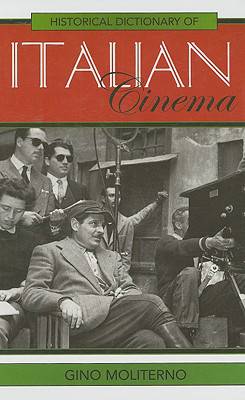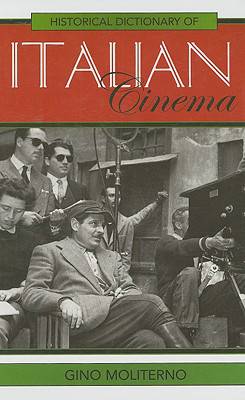
Door een staking bij bpost kan je online bestelling op dit moment iets langer onderweg zijn dan voorzien. Dringend iets nodig? Onze winkels ontvangen jou met open armen!
- Afhalen na 1 uur in een winkel met voorraad
- Gratis thuislevering in België vanaf € 30
- Ruim aanbod met 7 miljoen producten
Door een staking bij bpost kan je online bestelling op dit moment iets langer onderweg zijn dan voorzien. Dringend iets nodig? Onze winkels ontvangen jou met open armen!
- Afhalen na 1 uur in een winkel met voorraad
- Gratis thuislevering in België vanaf € 30
- Ruim aanbod met 7 miljoen producten
Zoeken
Omschrijving
Italian cinema is now regarded as one of the great cinemas of the world. Historically, however, its fortunes have varied. Following a brief moment of glory in the early silent era, Italian cinema appeared to descend almost into irrelevance in the early1920s. A strong revival of the industry which gathered pace during the 1930s was abruptly truncated by the advent of World War II. The end of the war, however, initiated a renewal as films such as Roma città aperta (Rome Open City), Sciuscià (Shoeshine, 1946), and Ladri di biciclette (Bicycle Thieves, 1948), flagbearers of what soon came to be known as Neorealism, attracted unprecedented international acclaim and a reputation that only continued to grow in the following years as Italian films were feted worldwide. Ironically, they were celebrated nowhere more than in the United States, where Italian films consistently garnered the lion's share of the Oscars, with Lina Wertmüller becoming the first woman to ever be nominated for the Best Director award. This second edition of Historical Dictionary of Italian Cinema contains a chronology, an introduction, and an extensive bibliography. The dictionary section has over 400 cross-referenced entries on major movements, directors, actors, actresses, film genres, producers, industry organizations and key films. This book is an excellent resource for students, researchers, and anyone wanting to know more about Italian Cinema.
Specificaties
Betrokkenen
- Auteur(s):
- Uitgeverij:
Inhoud
- Aantal bladzijden:
- 516
- Taal:
- Engels
- Reeks:
- Reeksnummer:
- nr. 28
Eigenschappen
- Productcode (EAN):
- 9780810860735
- Verschijningsdatum:
- 29/09/2008
- Uitvoering:
- Hardcover
- Formaat:
- Genaaid
- Afmetingen:
- 145 mm x 216 mm
- Gewicht:
- 839 g

Alleen bij Standaard Boekhandel
+ 385 punten op je klantenkaart van Standaard Boekhandel
Beoordelingen
We publiceren alleen reviews die voldoen aan de voorwaarden voor reviews. Bekijk onze voorwaarden voor reviews.











